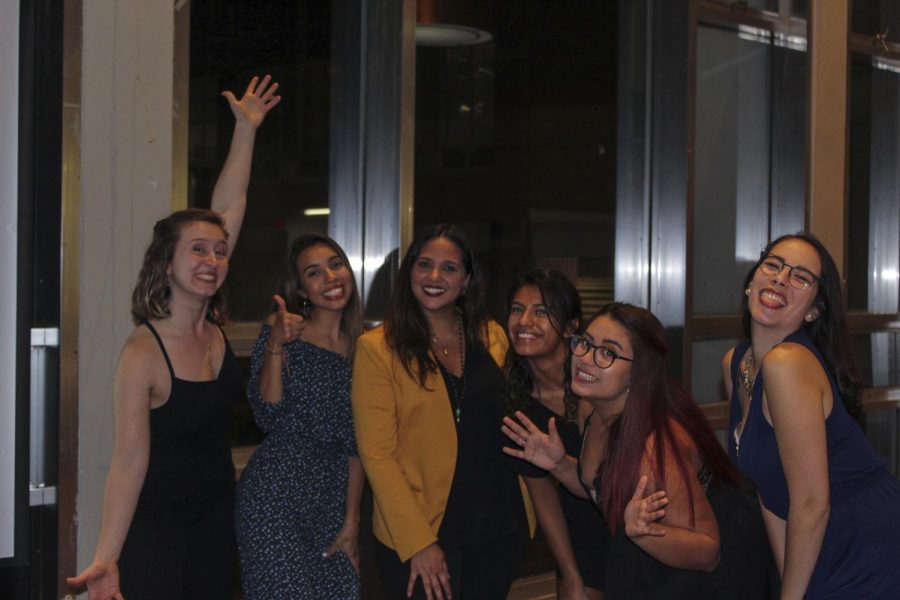Tenemos la música para unificarnos
The board of Hispanic Music Appreciation with AnaMaría Bech from VIVA NOLA Magazine on Sept. 26. Groups like this bring Hispanic culture to Loyola’s campus.
October 6, 2019
It’s 4:00 a.m. and the three of us are sitting in my living room and someone says, “¡Vamos a escuchar canciones de nuestra infancia!” In my state of tiredness, I smile and say, “I bet you guys don’t know this one,” but play it anyway. I am met with silence as “El Baile del Gorila” by Melody plays. We all look at each other and start singing to the top of our lungs, “Las manos hacia arriba, las manos hacia abajo …” In this moment, El Salvador, Nicaragua and Puerto Rico all come together and remember when this song played in all our elementary school parties. Spanish-speaking people come from different parts of the world but in this equation, music serves as a shared, unifying factor.
“Despacito” or “Gasolina” have been the accidental ambassadors of Hispanic culture that built a rhythmic bridge to non-hispanic people. For a moment, the focus was not on the different language, walls or status, but the joy of discovering a new summer hit. Like any hit, when the fads end, the walls came back up. We can’t forget about madrigals, salsas, merengues, boleros, regguetón, cumbias, rancheras and many others, our roots. However, through globalization, music in Spanish can be found everywhere from trap to K-pop. So what does that mean to us?
Being away from home and speaking English every day can be exhausting, but the second our songs get played in the club, we set fire to the dance floor. At university-sponsored events like the recent one hosted by Hispanic Music Appreciation Club, ¡Despierta Loyola!, it didn’t matter if you were from Spain or Colombia or Texas or New York; we all shared in listening and singing along to songs in Spanish. Through this shared experience, we let go of cultural, political and national differences. We come together to celebrate that there is still room at the table.
I think it’s about time for the Hispanic community at Loyola to wake up and bust out the panderetas. We are a growing population on campus but we are not just a set of numbers. We need to make our mark on this campus and support each other. We need to remember that joy and strength we rediscovered, when listening to “El Baile del Gorila,” and realize there is more that we share than what sets us apart. Then, embracing music as our unifying factor, we can invite more people to bridge differences and celebrate inclusion.








